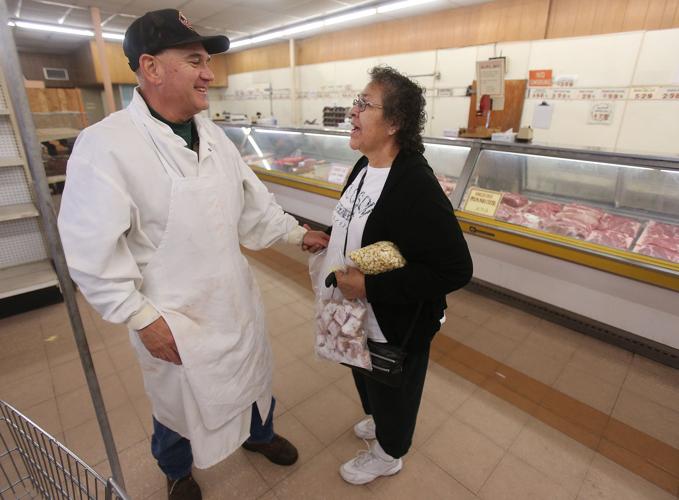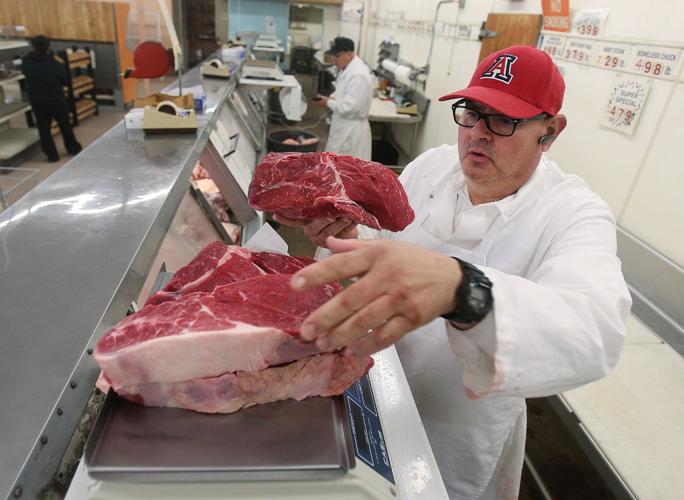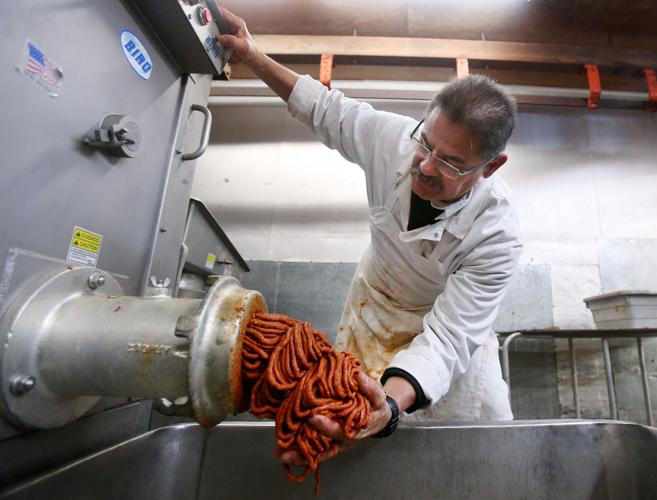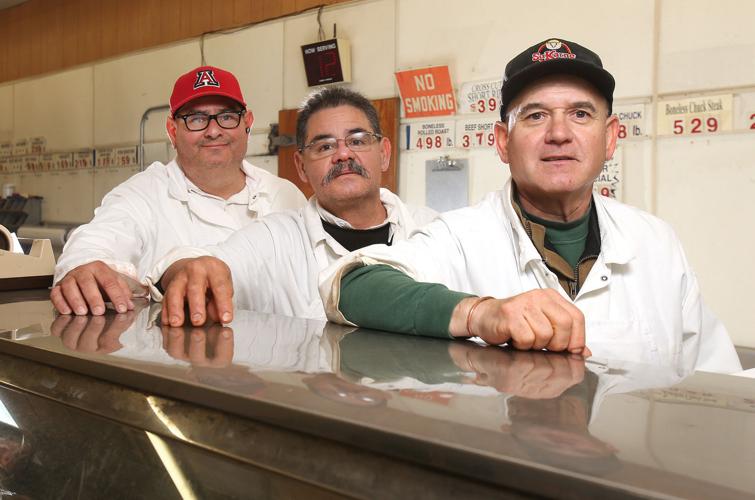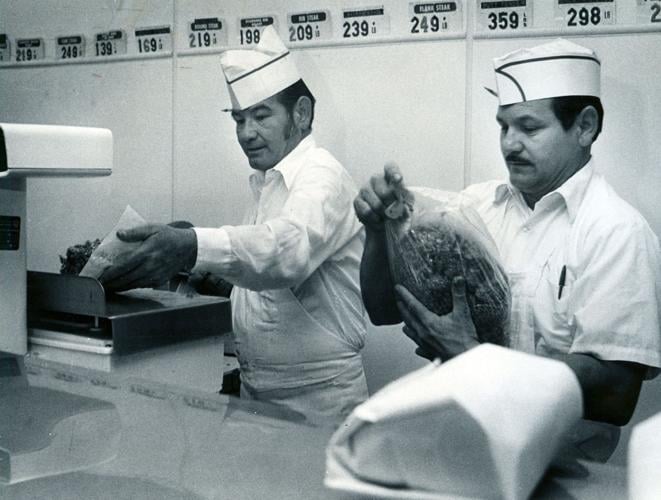After 62 years in business, American Meat Co. will close its doors at the end of the month — completing its final December of brisk sales.
Once longtime customers heard that the meat market at 1439 S. Fourth Ave., south of East 22nd Street, would be no more, aficionados of chorizo began coming in large numbers to purchase the Mexican sausage.
“We sold 10,000 pounds of chorizo in one week,” said Reuben Islas Jr., 57, whose father and two uncles opened the meat market in 1953.
The family recipe was passed down to Reuben, who remains busy keeping the chorizo in stock for the generations of customers who are coming to buy their fill for the last time. The meat market usually sells between 3,000 and 4,000 pounds of chorizo a week.
Islas and his brother, Bobby Islas, 54, along with their cousin, Joaquin “Jack” Islas Jr., 58, are owners of the business that they have operated solely for nearly 20 years. In addition to the three, the market employs four others.
“In the month of December, we rock,” explained Reuben of the traditionally invigorating sales to customers who come and purchase meat and supplies to make tamales and menudo for Christmas and New Year’s.
The meat market and grocery store, with limited canned goods and grocery items on mostly empty shelves, is expected to sell 40,000 to 50,000 pounds of boneless chuck for beef tamales, said Reuben. Plenty of beef tripe for menudo is in stock, and about 60,000 pounds is expected to be sold this holiday season, he said.
These amounts have sold for years, and now that the market is closing, loyal customers are expected to come and say farewell to the butchers who have served them over decades.
Reuben and Bobby, who both grew up working in the store cleaning, stocking shelves, bagging groceries and later graduated to learning how to cut meat, both gave kudos to their elders and founders of the meat market.
Those founders — who struggled to lay a strong foundation in the art of butchering and customer service — were the brothers’ father, Reuben Francisco Islas Sr., and their uncles, Alejandro Islas Jr. and Joaquin Islas Sr. Uncles Filiberto Islas and Oscar Islas also worked at the market. Eventually the children of all the five brothers worked in the family business.
Filiberto and Oscar were the maestros in the art of butchering, and passed it on to Reuben and Bobby. Their father was the master in customer service and ran the counter, satisfying families who came for top cuts of meat, said Reuben. Customers came from across the city to the market, and some still do.
But over time, the market has also suffered, the brothers said.
The recession hurt business, and unemployment has led to less buying, said Reuben, adding that it is still affecting sales. He also said beef prices have tripled within the last four to five years, and even though prices fluctuate they remain high.
Bobby agreed. He also mentioned that older, loyal customers have passed, and younger customers seek sales and lower prices — causing the family meat market to compete more with chain supermarkets and warehouses.
The brothers also said that working families are eating out more at restaurants, or buying fast-food meals during the week. “Longtime customers still come and buy meat, but they don’t buy like they used to,” Bobby said.
Scott Hessell, director of the University of Arizona’s Terry J. Lundgren Center for Retailing, said in an email that the “American consumer has been changing over multiple decades as it relates to food consumption.”
“From 1984 to 2009 the share of main dishes eaten at home that would be typically called ‘homemade’ has dropped from 63 percent down to 49 percent,” Hessell said. He also said “consumers’ food expenditures on meals eaten in one’s home has dropped from the mid-90 percent range to about 50 percent of total food purchases.”
“More and more of us are buying ready-to-eat meals rather than making meals from scratch and that meals eaten at home, by itself, have drastically decreased over a generation or more,” said Hessell said.
Consumers are buying more food at supercenters, warehouse clubs and convenience stores, Hessell said. “Lower costs at retailers like Walmart and others cannot be overlooked by budget-conscious consumers,” he said.
When the doors shut at American Meat Co., Reuben said he plans to retire and enjoy life — something that was difficult as a hands-on business owner. “I have a Harley-Davidson that needs miles on it,” said Reuben, pausing and then letting out a grin. “I have a pontoon that is looking for water.”
What he will mostly miss is seeing his customers — many who were like family. He will not miss the wet, cold cutting room where the meet is sliced, or the walk-in coolers that are set at 35 degrees.
For Bobby, the hardest part about seeing the market close is that it is “ending a chapter to the legacy” that his father and uncles left. “This work is my passion. I am taking tons of experience with me, and in the future, I plan on opening a small meat market in McKinney, Texas, where my son lives,” Bobby said.
The businessman has already done some homework. McKinney is part of the Dallas-Fort Worth metroplex.
“Unemployment is low and people have money to spend. The city is clean, attractive and businesses there are doing well,” he said.


